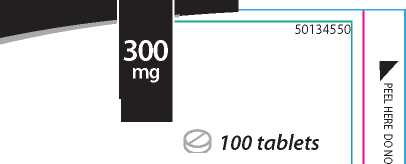Aspirin Tablets 300mg
Out of date information, search another95
96
96
96
96
95
4,5
3. How to take
Always take Dispersible Aspirin tablets exactly as your doctor has told you. If you are not sure, check with your doctor or pharmacist.
Avoid alcohol whilst taking this medicine.
Disperse the tablet(s) in a glass of water and drink.
Doses:
Adults, including the elderly: 1 or 2 tablets every 4 hours as required. No more than 8 tablets in any 24 hour period.
Children under 16 years old: Not recommended.
If you take more than you should
If you (or someone else) swallow a lot of tablets at the same time, or you think a child may have swallowed any contact your nearest hospital casualty department or tell your doctor immediately. Symptoms of an overdose
include being sick, deafness, dehydration, sweating, warm hands and feet, bounding pulse.
If you forget to take the tablets
Do not take a double dose to make up for a forgotten dose. If you forget to take a dose take it as soon as you remember it and then take the next dose at the right time. Do not take more than one dose in any 4 hour period.
4. Possible side effects
Like all medicines, Dispersible Aspirin tablets can cause side effects, although not everybody gets them.
Stop taking and contact your nearest hospital casualty department or tell your doctor immediately if you experience the following signs of an allergic reaction: runny nose, itchy skin, swelling of the face, lips, throat or tongue, worsening of asthma.
Tell your doctor or pharmacist if you notice any of the following effects or any effects not listed:
Gastrointestinal system - stomach ulcers or bleeding which can be severe (you may develop bloody or black tarry stools, severe stomach pain and vomit blood), stomach irritation (mild stomach pain, heartburn and feeling sick) and inflammation of the liver.
Blood - anaemia, changes in numbers and types of blood cells. If you have an increase in number of nose bleeds or notice that you bruise more easily or have more infections talk to your doctor.
Ears - ringing or buzzing in the ear.
Lungs - bronchospasm.
Salicylism - if you take large doses for a long time you may develop symptoms of salicylism, these include: dizziness, ringing or buzzing in the ear, deafness, sweating, feeling or being sick, headache and confusion.
Ifyou are concerned about any side-effects or have any other unusual effects, tell your doctor immediately and seek advice.
5. How to store
Keep out of the reach and sight of children.
Store the tablets below 25°C in a dry place.
Do not use Dispersible Aspirin tablets after the expiry date stated on the label/carton/bottle. The expiry date refers to the last day of that month. Medicines should not be disposed of via wastewater or household waste. Ask your pharmacist how to dispose of medicines no longer required. These measures will help to protect the environment.
6. Further information
What Dispersible Aspirin tablets contain
• The active substance (the ingredient that makes the tablets work) is 300mg aspirin (also known as acetylsalicylic acid).
|
r c* . . | |
|
v actavis |

• The other ingredients are citric acid, lactose, maize starch, saccharin sodium, calcium carbonate (E170).
What Dispersible Aspirin tablets look like and contents of the pack
Dispersible Aspirin are circular, white, uncoated tablets.
Pack sizes are 100 tablets.
Marketing Authorisation Holder and manufacturer
Actavis, Barnstaple, EX32 8NS, UK.
This leaflet was last revised in August 2009
5 012617011121
© 100 tablets
For oral use
Each tablet contains 300mg Aspirin. Also contains lactose. See leaflet for further information. Dosage: as directed by practitioner. Keep out of the reach and sight of children. Tablets to be dispersed in water immediately before use. Do not give to children aged under 16 years, unless on the advice of a doctor. 50134550
Keep tightly closed and store below 25°C in a dry place.
y actavis
PL 0142/5519 Actavis, Barnstaple, EX32 8NS, UK


46
101
95
_50 45
38_ | 12
50 45
99
99
4,5
96
96
99
96
99
95
99
96
Dispersible Aspirin 300mg Tablets
Read all of this leaflet carefully before you start taking this medicine.
• Keep this leaflet. You may need to read it again.
• If you have any further questions, ask your doctor or pharmacist.
• This medicine has been prescribed for you. Do not pass it on to others.
It may harm them, even if their symptoms are the same as yours.
Index
1. What Dispersible Aspirin tablets are and what they are used for
2. Before you take
3. How to take
4. Possible side effects
5. How to store
6. Further information
1. What Dispersible Aspirin tablets are and what they are used for
Dispersible Aspirin tablets belong to a group of medicines which have
analgesic (pain relieving), anti-inflammatory (inflammation reducing) and
anti-pyretic (temperature reducing) properties.
These tablets may be used for the relief of:
• headache, toothache, migraine, neuralgia (nerve pain), sore throat or period pains.
• symptoms of influenza, feverishness, rheumatic pains, sciatica (nerve pain of the leg/back), lumbago (lower back pain), fibrositis (muscular rheumatism), muscular aches and pains.
2. Before you take
Do not take Dispersible Aspirin tablets and tell your doctor if you have:
• an allergy (hypersensitivity) to aspirin, salicylates or non-steroidal anti-inflammatory drugs (NsAIDs) or other ingredients in the product. You may have developed difficulty breathing, a runny nose, itchy skin or
swelling after taking aspirin or a NSAID previously (see section 6)
• a stomach ulcer or a history of ulcers or indigestion
• nasal polyps associated with asthma
• haemophilia or other blood clotting disorder or are taking medicines to thin the blood.
Important warning:
There is a possible association between aspirin and Reye's Syndrome when given to children. Reye's syndrome is a very rare disease, which can be fatal. For this reason aspirin should not be given to children aged under 16 years, unless on the advice of a doctor.
Check with your doctor or pharmacist before taking Dispersible Aspirin tablets if you have:
• asthma or allergies
• heart, liver or kidney problems or gout
• an overactive thyroid gland
• uncontrolled high blood pressure
• dehydration
• anaemia or suffer from a deficiency of the enzyme glucose-6-phosphate dehydrogenase (G6PD) this can cause episodes of anaemia after eating certain foods such as fava beans (favism)
• systemic lupus erythematosus (sLe) or other connective tissue disease.
Taking other medicines
Please tell your doctor or pharmacist if you are taking or have recently
taken any other medicines, including medicines obtained without a
prescription. Especially:
• medicines to prevent blood clotting such as warfarin, dipyridamole, clopidogrel and heparin
• metoclopramide or domperidone (to prevent sickness)
• diuretics (“water tablets”) e.g. spironolactone, furosemide, acetazolamide
(to treat high blood pressure)
• medicines which make your urine more alkaline such as antacids, citrates
• probenecid, sulfinpyrazone (to treat gout)
• methotrexate (to treat some cancers, psoriasis and rheumatic disease)
• medicines to treat diabetes
• phenytoin or sodium valproate (to treat epilepsy)
• corticosteroids (to suppress the immune system)
• mifepristone (to induce abortion)
• other non-steroidal anti-inflammatory drugs - NSAIDs used for pain (eg ibuprofen or naproxen)
• medicines which can cause hearing problems (vancomycin)
• medicines such as kaolin (for diarrhoea)
• antidepressants such as venlafaxine or SSRIs (e.g. paroxetine)
• cilostazol (to treat intermittent claudiction)
• iloprost (to treat high blood pressure)
• zafirlucast (to treat asthma)
• silbutramine (used in obesity).
Pregnancy and breast-feeding
Avoid taking Dispersible Aspirin tablets during pregnancy especially in the last 3 months of pregnancy or whilst breast-feeding. Ask your doctor or pharmacist for advice before taking this medicine.
Sugar intolerance
If you have been told you have an intolerance to some sugars, contact your doctor before taking this medicine, as it contains a type of sugar called lactose.
Surgery and tests
If you need to have an operation including having your teeth removed or blood and urine tests, tell your doctor or dentist you are taking this medicine.
101
|
gN . . | |
|
v actavis |


Each tablet contains 300mg Aspirin. Also contains lactose. See leaflet for further information. Dosage: as directed by practitioner. Keep out of the reach and sight of children. Tablets to be dispersed in water immediately before use. Do not give to children aged under 16 years, unless on the advice of a doctor. Keep tightly closed and store below 25°C in a dry place.
PL 0142/5519
vactavis
Actavis, Barnstaple, EX32 8NS, UK
99
99
99
99
99